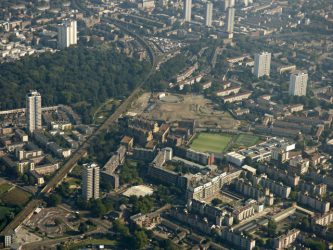 The local council for the London borough of Tower Hamlets has adopted a new gambling policy that means the council may restrict the opening of new gambling premises near schools, playgrounds, hospitals and residential homes for the elderly.
The local council for the London borough of Tower Hamlets has adopted a new gambling policy that means the council may restrict the opening of new gambling premises near schools, playgrounds, hospitals and residential homes for the elderly.In addition, the policy would allow the council to block the building of new gambling premises near any venues where a Gamblers Anonymous meeting is held.
The new policy will come into effect on 14 December.
“We know that gambling can take people down a difficult path and that the young, the vulnerable and those experiencing financial hardship are at particular risk of being lured in,” Ann Sutcliffe, corporate director of the council’s Place Directorate, the body responsible for overseeing environmental and economic activity in the borough, said.
The new policy, part of a renewal that occurs every three years, follows a 12 week consultation that ran from April to June this year. During this process, the council noted, residents expressed concern about the impact of high street gambling shops on their community.
The council said the changes were in keeping with the three objectives licensing authorities must consider under the Gambling Act 2005.
The Act orders local authorities to prevent gambling from being a source of crime or disorder, ensure that it is conducted in a fair and open way and protect children and other vulnerable people from being harmed or exploited by gambling.









